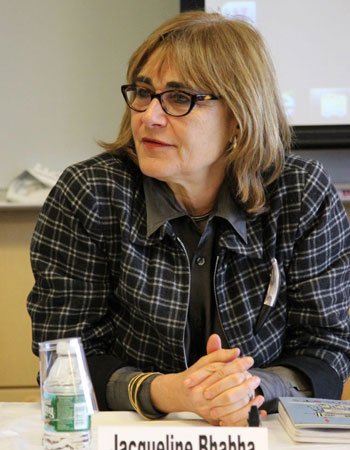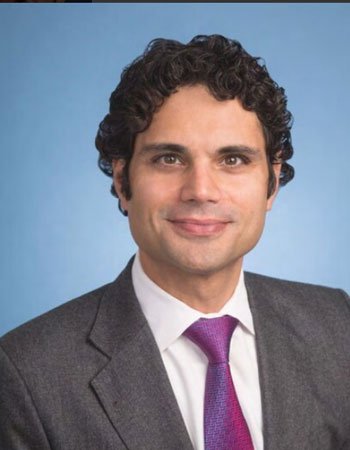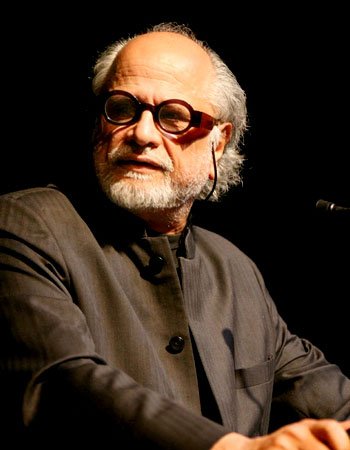Homi K. Bhabha is renowned as a distinguished writer and lecturer, celebrated for his contributions to postcolonial theory and cultural studies. His academic work has earned him global recognition, particularly his influential concepts such as hybridity and mimicry.
Homi K. Bhabha Height, Age, Wife, Children, Biography, & More
In 2012, he was honored with the Padma Bhushan award by the Government of India, acknowledging his profound impact on intellectual discourse and education. Bhabha’s writings have deeply influenced critical theory, offering new perspectives on identity, power, and representation in a postcolonial context. His insights continue to shape academic discourse and inspire scholars worldwide, cementing his legacy as a pioneering figure in cultural and postcolonial studies.
Early Life
Homi K. Bhabha was born on November 1, 1949, in Mumbai, Maharashtra, India. He completed his early education at St. Mary’s School in Mumbai. Bhabha pursued his higher education at Elphinstone College in Mumbai for his Bachelor’s degree. He then went on to achieve a Master’s degree, M.Phil., and D.Phil. in English Literature from Christ Church College, University of Oxford, England.
Education
Homi K. Bhabha attended St. Mary’s School in Mumbai for his schooling. He pursued his Bachelor’s Degree from Elphinstone College in Mumbai, Maharashtra. For higher studies, he obtained a Master’s Degree in English Literature, an M.Phil., and a D.Phil. Degree in English Literature from Christ Church College, University of Oxford, England.
Age
Homi K. Bhabha was born on 1 November 1949, a Tuesday, in Mumbai, Maharashtra. As of 2024, he is 75 years old. His zodiac sign is Scorpio, and he holds Indian nationality.
Physical Stats
Homi K. Bhabha is approximately 5′ 7″ tall, with black eyes and white hair (half bald).
Wife and Children
Homi K. Bhabha is married to Jacqueline Bhabha. They have two sons, Satya Bhabha and Ishan Bhabha, and a daughter named Leah Bhabha.
Family
His family information is not known.

Homi K. Bhabha wife Jacqueline Bhabha

Homi K. Bhabha Daughter Leah Bhabha

Homi K. Bhabha Daughter Leah Bhabha

Homi K. Bhabha Son Ishan Bhabha

Homi K. Bhabha Son Satya Bhabha
Career
Homi K. Bhabha is a distinguished figure in the fields of postcolonial theory, cultural studies, and literature. He has held prestigious academic positions, including serving as the Anne F. Rothenberg Professor of the Humanities at Harvard University. Bhabha’s influential writings, such as “The Location of Culture,” have shaped critical discourse on identity, hybridity, and representation in postcolonial contexts. His work bridges theoretical insights with practical applications, influencing generations of scholars globally and solidifying his legacy as a leading intellectual in cultural studies and beyond.
Books Works
Edited books and art exhibition catalogs
- Without Boundary: Seventeen Ways of Looking, with Fereshteh Daftari and Orhan Pamuk, The Museum of Modern Art (2006; ISBN 9780870700859).
- Negotiating Rapture: The Power of Art to Transform Lives, Museum of Contemporary Art (1996; ISBN 9780933856400)
- Nation and Narration, Routledge
- Midnight to the Boom: Painting in India After Independence, Peabody Essex Museum (2013; ISBN 9780500238936)
- Matthew Barney: River of Fundament, Okwui Enwezor, Hilton Als, Diedrich Diederichsen, David Walsh, Skira
- Edward Said: Continuing the Conversation, co-ed. with W. J. T. Mitchell (originally an issue of Critical Inquiry), University of Chicago Press
- Anish Kapoor, Flammarion
Essay Collection
The Location of Culture, Routledge
Articles
- “‘What does the Black man want?'” New Formations 1 (1987): 118–130.
- “The Other Question….” Screen (November—December 1983), 24(6), 18–36.
- “The other question: difference, discrimination and the discourse of colonialism”. In Russell (ed.), Out there: marginalization and contemporary cultures. New York: New Museum of Contemporary Art, 1990.
- “Representation and the colonial text: a critical exploration of some forms of mimeticism”. In Frank Gloversmith (ed.), The Theory of Reading. Brighton, Sussex: Harvester Press, 1984.
- “Remembering Fanon: self, psyche, and the colonial condition”. In Barbara Kruger and Phil Mariani (eds), Remaking History. Seattle: Bay Press, 1989.
- “Remembering Fanon”. Introduction to the English edition of Black Skin, White Masks. London: Pluto Press, 1986.
- “Parthasarathy, R. “Indo-Anglican attitudes”. TLS (The Times Literary Supplement) 3 (1978): 136.
- “Imaginings”. New Statesman & Society 2.70 (1989): 45–47.
- “Hybridité, identité et culture contemporaine”. In Jean Hubert Martin (ed.), Magiciens de la terre. Paris: Editions du Centre Pompidou, 1989.
- “At the limits”. Artforum 27.9 (1989): 11–12.
- “Articulating the archaic: notes on colonial nonsense”. In Peter Collier and Helga Geyer-Ryan (eds), Literary Theory Today. Ithaca, N.Y.: Cornell University Press, 1990.
- “Apologies for Poetry: A Study in the Method of Mill and Richards”. Journal of the School of Languages [New Delhi] 3.1 (1975): 71–88.
Translations
- [Dudiker, Karsten (trans.)] “‘Angst’ in kultureller Ubersetzung”. Heterotopien der Identitat: Literatur in interamerikanischen Kontaktzonen. Ed. Hermann Herlinghaus; Utz Riese. Heidelberg, Germany: Carl Winter Universitatsverlag, 1999. 83–97.
Net Worth
The net worth of Homi K. Bhabha is currently not known.
Some Lesser Known Facts About Homi K. Bhabha
- Some of the books written by him include Nation and Narration (1990), The location of culture (1994), Negotiating Rapture: The Power of Art to Transform Lives, Museum of Contemporary Art (1996), Cosmopolitanisms in Cosmopolitanisms, Duke University Press (2002).
- Since 2001, he held the position of an Anne F. Rothenberg Professor of English and American Literature and Language at Harvard University.
- In 2001, he worked as a visiting professor at the University College London.
- He was offered an opportunity of a fellowship at Princeston University and was made the Old Dominion Visiting Professor there.
- He served as a Steinberg Visiting Professor at the University of Pennsylvania.
- He loves hosting dinner parties and cooking dinner for his guests. He serves them meat with bones as his special dish.
- He is an Indian scholar and critical theorist.
- He has worked at the Dartmouth College as a faculty fellow at the school of criticism and theory.
- He has worked as a lecturer in the department of English, at University of Sussex for more than 10 years.
- He has served as one of the members of an Editorial Collective of Public culture, which is an academic journal published by Duke University Press.
- He belongs to a Parsi family.
- From 1997 to 2001, he worked as a Chester D. Tripp Professor in Humanities at University of Chicago
- For 3 years he was a member of the humanities jury for the Infosys Prize.
Check Also: Snehlata Shukla
| Body Measurements | Not Known |
| Birth Place | Mumbai, Maharashtra |
| Children | Son(s): Satya Bhabha, Ishan Bhabha, Daughter: Leah Bhabha |
| Eye Color | Black |
| Hair Color | White (Half Bald) |
| Height In CM | 171 CM |
| Height In Meter | 1.71 M |
| Nationality | Indian |
| Parents | Name Not Known |
| Profession | Writer, Lecturer |
| Siblings | Not Known |
| Spous | Jacqueline Bhabha |
| Weight | Not Known |
| Zodiac Sign | Scorpio |
Comments
If you have any question, please write below.

Enter your comment!